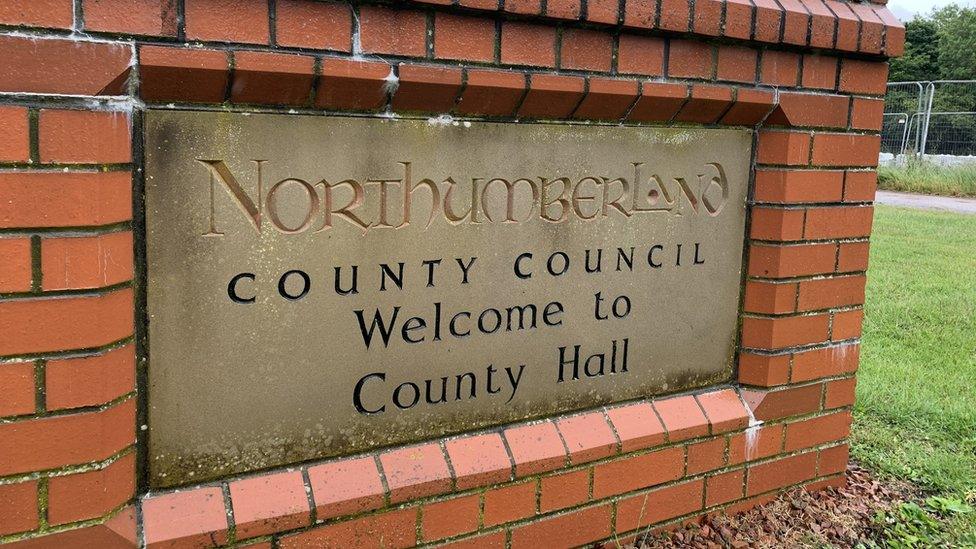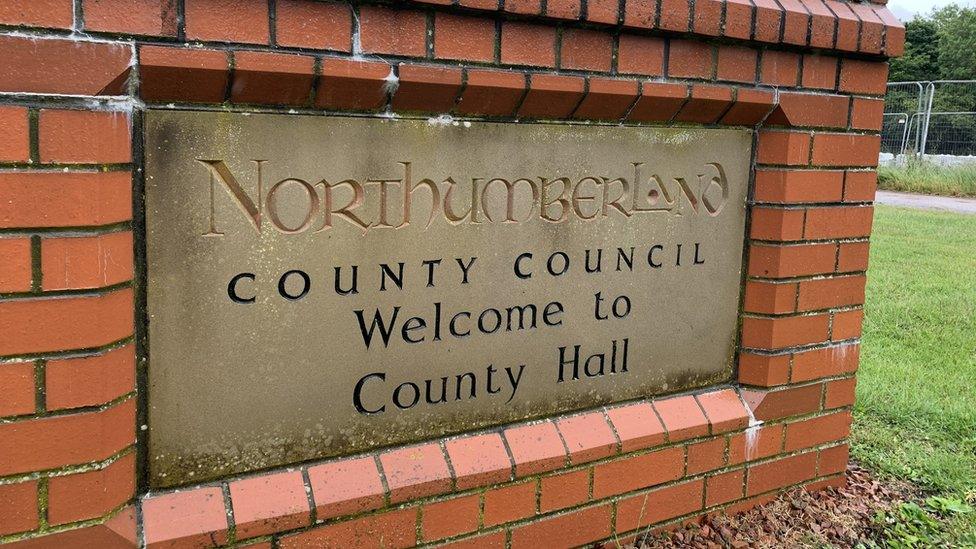Northumberland Council manager pay-outs worth £1m 'unlawful'
- Published

Northumberland County Council's internal auditors said it had made unlawful payments to six leaving managers
Six pay-outs to former council managers totalling more than £1m were unlawful, an internal inquiry has found.
Northumberland County Council made exit payments to six managers between May 2017 and 2022 which did not have proper authorisation, the council's internal audit team said.
The council has previously been found to have made unlawful payments.
Council leader Glen Sanderson said the council was now in a "different" and "better place".
Council officer Jan Willis and the internal audit team probed the payments after alleged unlawful expenditure was identified in the council's international health consultancy business, which was found to be in breach of the Localism Act.
They looked at all exit packages over £100,000 which must be approved by the Staff and Appointments Committee or by full council, the Local Democracy Reporting Service said.
'Absent and opaque'
A provision detailing these rules in the council's pay policy was removed "for reasons that are unclear" between 2019 and 2022, Ms Willis said.
As a result of the omission, five exit payments above £100,000 were not subject to appropriate scrutiny and have been deemed by Ms Willis to be unlawful, while a further payment made to a former monitoring officer was not considered by councillors despite the fact it should have been, according to government guidance.
The unlawful payments identified were:
Commissioning and Finance Manager - £135,603.50
Short Term Support Service Manager - £110,452.98
Service Director Adult Social Care - £435,968.39
Legal Services Manager - £72,434.50
Revenues Manager - £166,151.66
Chief Information Officer - £138,190.79
In a report for the council's audit committee, external, Ms Willis said the payments were made in accordance with the scheme at the time and four were signed off by senior managers.
In mitigation, there was "confirmation" that the two-year "payback period" - the time taken for the savings made by making the officer redundant to break even with the cost of the pay-out - would "be achieved".
Ms Willis said she looked to establish an evidence trail as to why the payments were made, who approved them, whether alternatives were considered and how making the payments represented "best value" to both the council and the taxpayer, but the trail was "mostly absent and opaque at best".
She said she was satisfied measures were now in place to minimise the risk of the issue reoccurring and the council had taken legal advice which concluded that there were no "good prospects" of recovering any of the money paid out.
Coupled with the legal costs of seeking repayment, the "uncertainty" created would "outweigh any advantage that might be achieved", she said.
Mr Sanderson said the council had "totally transformed the ways in which we work", adding: "The review of exit payments has allowed us to study exactly what had happened and ensure we have now a totally transparent and robust reporting and approval processes in place."
The report will be debated by members of the audit committee on Wednesday.

Follow BBC North East & Cumbria on Twitter, external, Facebook, external and Instagram, external. Send your story ideas to northeastandcumbria@bbc.co.uk, external.
Related topics
- Published10 January 2023

- Published9 June 2022

- Published8 June 2022
